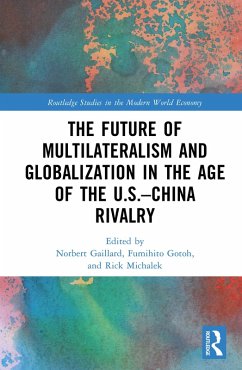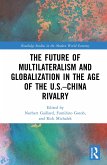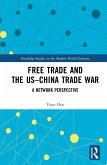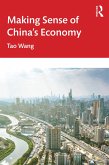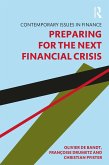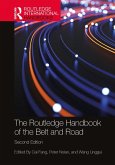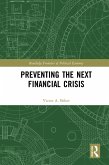Dieser Download kann aus rechtlichen Gründen nur mit Rechnungsadresse in A, B, BG, CY, CZ, D, DK, EW, E, FIN, F, GR, HR, H, IRL, I, LT, L, LR, M, NL, PL, P, R, S, SLO, SK ausgeliefert werden.
Christopher W. Hughes, Professor of International Politics & Japanese Studies, Department of Politics and International Studies, University of Warwick
"A serious book from expert scholars and financial practitioners, exploring how the most pivotal relationship in the world, the US-China rivalry, is reshaping the world economy and the international order. It provides new insight into how US-China economic interdependence has turned into tension and rivalry - for instance how a convergence of US and China's capitalisms has given rise to the US-China tensions, not their purported differences. A valuable resource on how reckless financialization of the US economy, China's unconventional role in the WTO, Chinese development lending and debt restructuring practices, and US-China competition and cooperation in global standard setting are recasting the global economy. This comprehensive study draws attention to the major dilemmas posed by geopolitics, pandemics, and climate change, and it invites us to reflect on how the US, China and others should respond."
Gregory T. Chin, Associate Professor, Department of Politics, York University & Mayling Birney Global Scholar (2022-23), The London School of Economics and Political Science
"This volume provides a clear account of the challenges the liberal international order has to face in a context of a rising US-China rivalry. More importantly it also offers recommendations as to how to shift to a "post-globalized" world. A must read for people interested in understanding the present international economic system and where it is heading."
Françoise Nicolas, Center for Asian Studies, Ifri, Paris.

